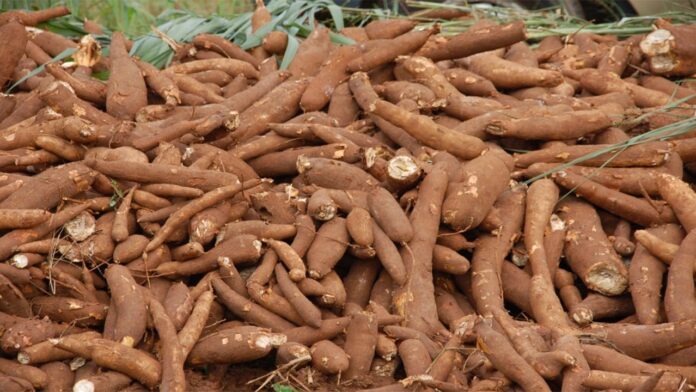By Jeph Ajobaju, Chief Copy Editor
America does not eat garri, Nigeria does, but for the sake of the by-products of cassava, and to feed nations that eat garri, the United States plans to fund research on it production in West Africa, where millions eat garri as a staple food.
Nigeria relies on imports of cassava by-products and spends more than $580 million to import them yearly, according to Central Bank of Nigeria Governor, Godwin Emefiele.
He said Nigeria is the world’s largest producer of cassava tubers, churning out 53 million metric tonnes per year, and still imports cassava derivatives worth $580 million each year. This cannot continue, he insisted.
And the US Mission Nigeria has chipped in, announcing that the US Department of Agriculture and the American Soybean Association are supporting West African researchers on garri production.
“The United States is funding breakthrough research on garri production to support nutritional improvement in West Africa.
“US Department of Agriculture and the American Soybean Association are supporting West African researchers to commercialize using soy flour in processing garri – undoubtedly Nigeria’s most popular staple food,” the US Mission said.
“This innovative research is leading to scientific breakthroughs with huge potential to reduce iron deficiency anaemia & protein-energy malnutrition.”
Local initiatives
Emefiele enthused at the commissioning Rivers Cassava Processing Company (RCPC) in Port Harcourt that the plant will help reduce imports.
His words: “The facility will help in reducing our reliance on imports of cassava by-products, which serves as a key input in the production of food items in several factories. Nigeria imports over $580 million worth of cassava by-products annually.
The cassava processing plant supports the CBN’s mandate of promoting economic growth for Nigeria, he added.
In his view, the facility is also a platform for farmers to access finance from the CBN and other financial institutions through the Anchor Borrowers Programme (ABP).
RCPC has capacity to process over 45,000 tonnes of cassava to provide high-quality cassava flour for households, industries, and bakeries.
CBN’s plan for cassava production
Back in 2019, the CBN signed a Memorandum of Understanding (MoU) with the Nigeria Cassava Growers Association and Large Scale Cassava Processors in order to reduce imports.
According to Emefiele, the MoU was signed to guarantee steady off-take and processing of cassava going forward, and to maximise local benefits of all the derivatives in cassava and save foreign exchange.
He reiterated that Nigeria is blessed with several varieties of cassava that could be explored to optimum potential.
“In achieving this goal,” Emefiele stressed, “we are holding consultations with the International Institute for Tropical Agriculture, Ibadan and the National Root Crops Research Institute, Umudike.
“Apart from foreign exchange conservation, increasing cassava production is a necessity as starch, glucose, sorbitol and other products currently being imported.
“Statistics show that out of the 53.0 million metric tonnes of cassava produced in Nigeria annually, more than 90 per cent is processed into food for human consumption.
“Whereas a significant industrial demand exists for the output of processed cassava, primarily as substitutes for imported raw materials and semi-finished products.
“Potential demand that exists in our cassava value chain, demand High-Quality Cassava Flour (HQCF) in bread, biscuits and snacks is above 500,000 tonnes annually while supply is below 15,000 tonnes.
“Demand for cassava starch is above 300,000 tonnes annually while supply is below 10,000 tonnes.”
Emefiele listed problems in the cassava industry to include low yield varieties, poor farm practices, lack of good quality farm inputs, non-utilisation of available cultivable lands, manual system of production, inadequate funding for smallholder out-grower schemes, and low processing capacity.













